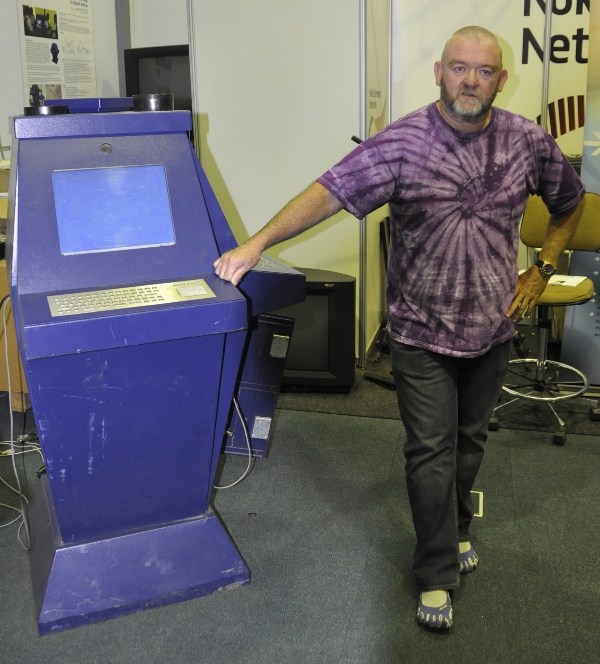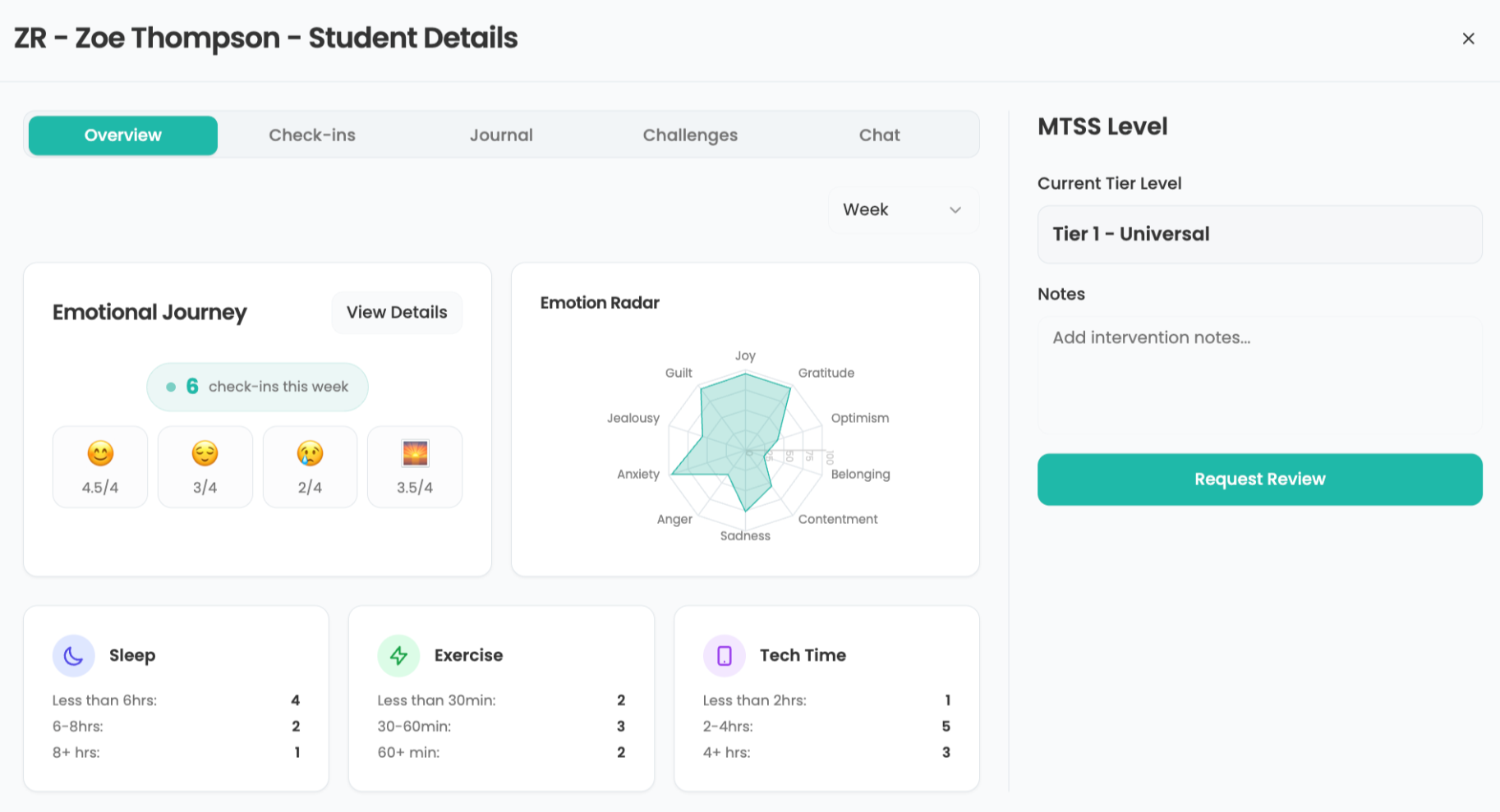My South African Adventure, Part I

Pennsylvania K-6 computer teacher Jennifer Kraft traveled to South Africa as part of the ISTE and People to People Education Technology Delegation for 2011 this past October. In a three-part series, she shares her remarkable journey with Tech & Learning.
This spring, I received a letter from the organization People to People inviting me to participate in the education technology delegation that was also involving ISTE, which is sort of an ed techies "mothership." I felt very honored to have received this invitation, and was excited that I could participate in the experience of traveling to South Africa to meet with educators and discuss their schools and how technology is used.
Meraka Institute, Johannesburg
After a 17-hour trip and a day spent visiting with government education officials and touring a local orphanage, we were up early and headed to the Meraka Institute to talk about information and communications technology (ICT). We were all very pleased with the discussions that we held with the people there. They came from very varied backgrounds, (marketing and music, Navy torpedo specialist, social sciences, etc.) but work well together as a team creating ingenious projects!
During the introductions we got off on a tangent about mobile devices. Adele had some great viewpoints on the two ends of the mobile device user spectrum. While we might have several devices that we use for several purposes (I am guilty of this) many in Africa and the less privileged may share one cell phone with several people. It was also interesting to hear how they might have one phone but several sim cards that they exchange throughout the day to get the best rates available. Many will also skip a meal to pay for air time. She also said that they use their phones for all purposes. While we may use our phone to talk, a camera to take pictures, a laptop to type papers, etc., they will use the one device for everything. There are even some situations where all the information for one village is held on one device. South Africa also has cell phone coverage across the entire country, though some areas may be spotty.
We also continued to discuss mobiles and how to get them into classrooms. We talked about the debate of whether students should bring their own devices to use in school or should schools provide a 1 to 1 situation. Very interesting, since this might come up at North Schuylkill.
Another large chunk of the day was spent discussing the Digital Doorway project. This is one of the coolest things I have ever seen or heard of! The man behind it was pretty cool as well. He and his team created all-weather computers that are bolted on the veranda of a building in a village where there are otherwise no computers. Several new prototypes are being built, based on issues that they've had at some of the locations, as well as new prototypes for countries where some of these machines are deployed, so they can afford and build the units themselves. They are not connected to the internet and have an internal database with information and games. They wanted to make it as educational as possible.
Tools and ideas to transform education. Sign up below.
So they place these machines in these villages and then monitor how they are used. From the first drops they learned a lot and are still working on new features to add, such as a Bluetooth dongle that will allow the users to send themselves information and videos to their phones. The most important thing about this project is that it is making an impact on the communities and users. The users are learning skills that make them employable.
The discussion swerved once again to the topic of mobiles in education with a program that Meraka started called Dr. Math. Dr. Math is a mobile mathematics tutoring service using instant messaging. The students access tutors using their cell phone and communicate via text messaging. The service is available after school and on the weekends, with Sunday night being their most heavily utilized time. They are currently working on a “mathlete” program where students become the tutors. They have found that those students who work with other students actually learn better (learning by teaching is nothing new). One school, Cornwall Hill High School, is part of the pilot for this and their students are becoming tutors.
They are looking for more tutors from around the world. It could be those with a good grasp of the subject, teachers, or students who have taken higher level mathematic courses and excelled or are able to work to tutor others. This link will allow you to register to become a tutor and this link will take you to the official Dr. Math website.
While we were at Meraka, we had a special visit from a mathematics teacher from Cornwall Hill High School. Helen had a very interesting theory about teenagers. She said that they don't own their home, their don't own their bed, and they don't even own the toilet that they use in their home, but they do own a cellular device. She has started to allow them to use mobiles in her classroom because it's something they have ownership of and it allows them to use it to take ownership of their learning.
She said that in the short amount of time that she's been working with them and their mobile devices, she has learned a few things. If she finds an app she likes, chances are it will only be for one type of phone or if it is cross-platform, it won't work the same way on each device. She said she tries to find mobile sites that the students can access regardless of the device they are using. If she does want to use an app, she will team the students into groups and rely on the conversations that occur through the use of the application.
She also said that a good teacher is a good teacher whether they use technology or not. This was something we touched on in nearly every educational meeting that we had. A good teacher is going to be a good teacher regardless of the situation they are in. They will find ways to teach their students. It was agreed, however, that the use of technology could make a good teacher an awesome teacher -- if they use the technology appropriately.
They were also focused on creating MobiKits. These MobiKits will contain mobile devices (cell phones or tablets), a MobiCharge that will use solar energy to charge the batteries for the devices and the wireless signal, and another piece that will supply the Internet source. These will be packed up in tough cases and distributed again into rural villages that will not have lines to provide Internet services. This is one of their new projects and Grant was working hard on the prototype.
The people at Meraka were truly innovators. They were thinking way outside of the box to find solutions for very unique situations. Their one problem seemed to be putting their research into practice. I hope that they are able to find a way to involve practitioners in their efforts to start building their programs.
Next week: Jennifer Kraft reports from Liwa Primary School in Capetown.
Jennifer Kraft teaches computer at North Schuylkill Elementary in Ashland, PA. She blogs at http://www.blogger.com.
